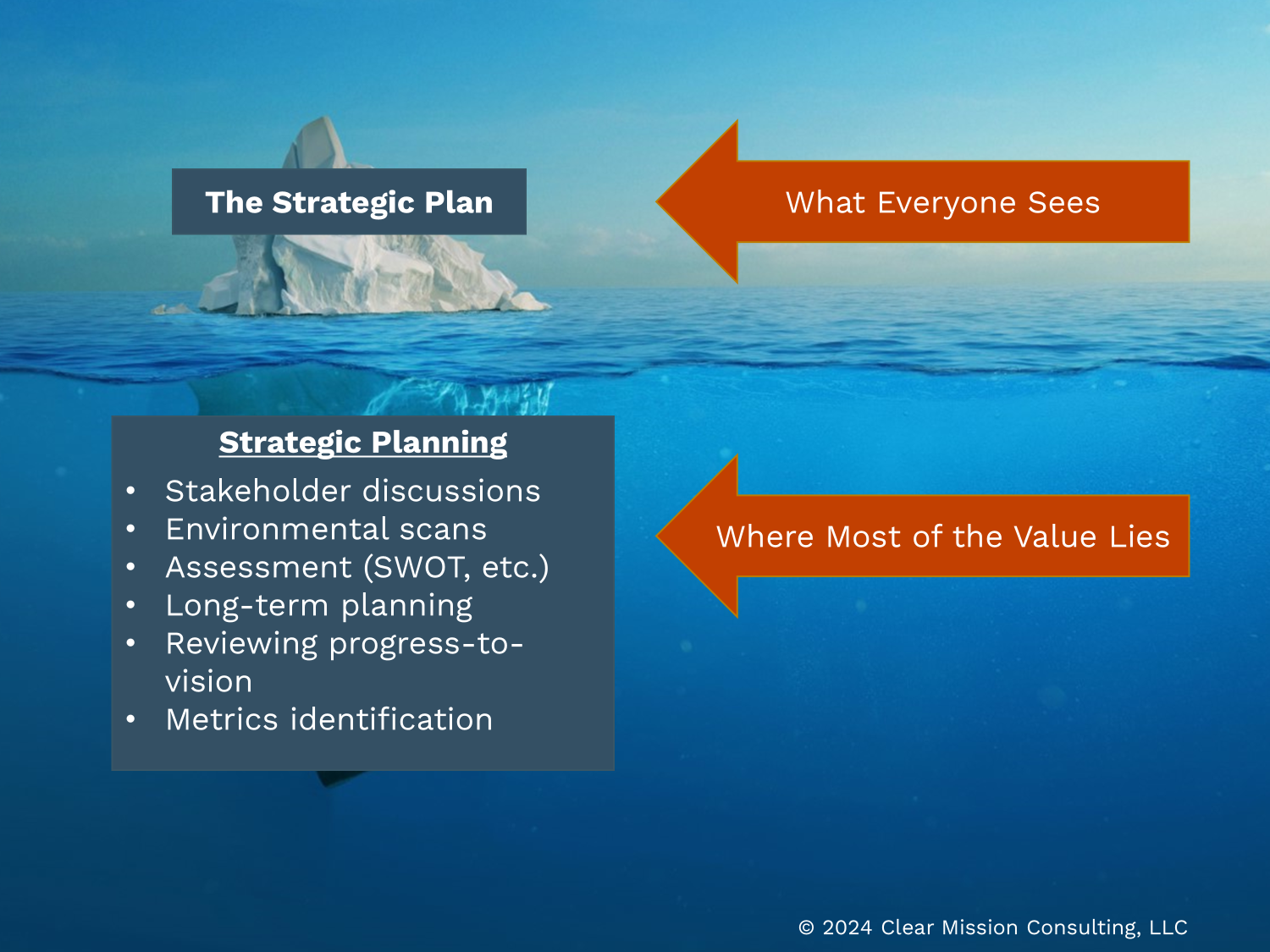Strategy is a Process, Not a Document
June 15, 2023 | By David M. Wagner
Dwight Eisenhower famously cited the military adage that “plans are useless, but planning is indispensable.”
“Useless?” An odd quote for a consultant, who often writes strategic plans, to highlight.
I do think written plans are important. But many organizations put too much stock in their “strategy” or “strategic plan” – the document itself – as being the point of strategic planning.
This has two detrimental consequences:
Missing opportunities to add value through the strategic planning process.
Waiting too long to identify and make necessary updates to plans.
Value Beyond the Document
Again, I diverge from Eisenhower on plans being “useless.” Crafted thoughtfully, written plans serve as highly effective communications tools. A plan with a clear vision and roadmap can align stakeholder actions to shared outcomes. Written plans help clarify decisions and invite accountability for those commitments.
But having a beautiful, glossy, well-written strategy document is only the tip of the iceberg.
Stakeholders won’t be inspired by your strategy if they don’t seem themselves in your plans. Or if it doesn’t reflect the world as they see it. Or if they felt left out of the process of crafting the strategy.
Just as importantly, a strategy based on faulty information or assumptions is much less likely to succeed than one grounded on facts.
Inviting the right stakeholders into the planning process at the right times adds tremendous value. Clients, funders, partners, staff, and other key players hold useful information and insights. Their inclusion will both improve the quality of the strategy and build buy-in to the plan, even before it’s written.
In addition to stakeholder input, the introspection that accompanies planning is invaluable. And that reflection should happen more than once every few years.
Not a One-Time Thing
Every plan is a prediction. And few predictions are perfect.
This is the heart of Eisenhower’s quote: no matter how thoroughly researched and analyzed, your strategic plan cannot accurately predict how things will turn out in practice.
For one thing, the environment around us is constantly changing. If your team had a strategic plan in place before the COVID-19 pandemic, you have probably seen some disruptions to that plan.
We also learn more by executing our plans than we could ever predict in advance – the effectiveness of programs, the cost of processes, the reliability of our chosen metrics.
Ignoring these changes and new insights is like stubbornly maintaining course when your ship is heading for the rocks. Course corrections are necessary. And the sooner you make them, the easier they’ll be.
That’s why every strategic plan should be a living document: continuously reviewed, and updated when the current course needs to change.
If your approach to strategic planning is a document-centric, once-every-few-years exercise, ask yourself: Are you missing out on opportunities to include more stakeholders and better information in your planning? Are you sailing toward the rocks? Schedule a free consultation for help making strategy an ongoing, value-adding activity for your team.


